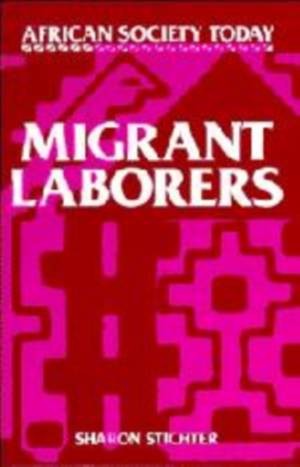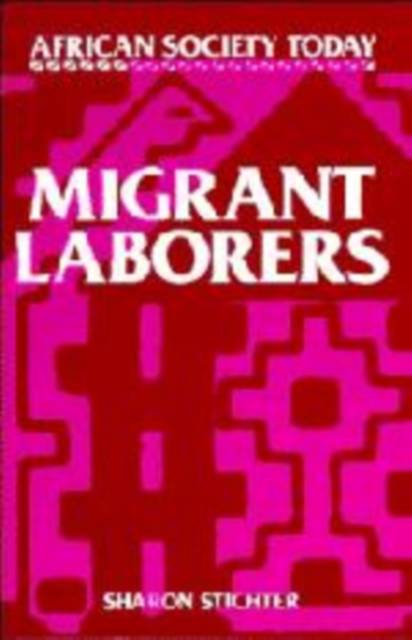
- Afhalen na 1 uur in een winkel met voorraad
- Gratis thuislevering in België vanaf € 30
- Ruim aanbod met 7 miljoen producten
- Afhalen na 1 uur in een winkel met voorraad
- Gratis thuislevering in België vanaf € 30
- Ruim aanbod met 7 miljoen producten
Zoeken
Omschrijving
First published in 1985, Migrant Laborers surveys the literature on labor migration in east, west and southern Africa and interprets it from a political economy perspective. It addresses the controversies as to the origins of migrancy and its effects on the rural economy, emphasizing the differences in the response of various African pre-capitalist societies to wage labor, and the regional variations in the effects on the rural economy and on the division of labor within the rural household. Male migrants' experiences with forced labor, recruitment systems, advance payments and compound controls are described, and the rather different character of women's migration is examined. A central concern is the development of migrant workers' consciousness and forms of resistance. Labor protest among dockers, miners and domestic workers is examined with respect to these questions. Finally, the persistence of migrancy in South Africa is contrasted to the decline of labor migrancy in other parts of the continent
Specificaties
Betrokkenen
- Auteur(s):
- Uitgeverij:
Inhoud
- Aantal bladzijden:
- 234
- Taal:
- Engels
- Reeks:
Eigenschappen
- Productcode (EAN):
- 9780521272131
- Verschijningsdatum:
- 27/12/1985
- Uitvoering:
- Paperback
- Formaat:
- Trade paperback (VS)
- Afmetingen:
- 123 mm x 186 mm
- Gewicht:
- 272 g

Alleen bij Standaard Boekhandel
+ 121 punten op je klantenkaart van Standaard Boekhandel
Beoordelingen
We publiceren alleen reviews die voldoen aan de voorwaarden voor reviews. Bekijk onze voorwaarden voor reviews.











